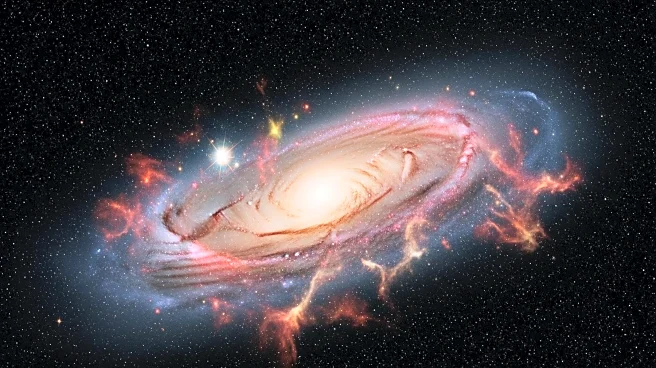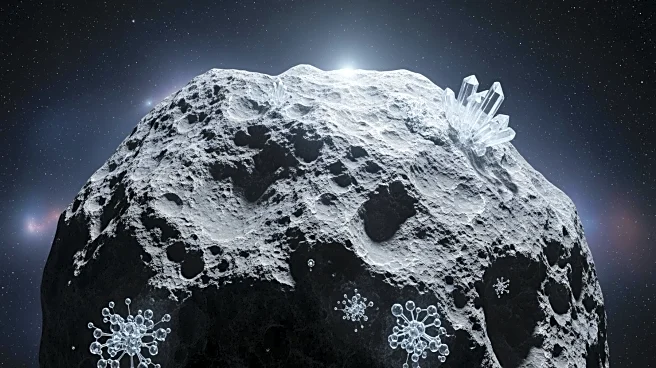What's Happening?
Recent findings from the Dark Energy Survey and Dark Energy Spectroscopic Instrument suggest that dark energy, a mysterious force driving the universe's expansion, may be evolving over time. Traditionally considered constant, new data indicates that dark energy might be changing, prompting astrophysicists to explore dynamic models. Researchers Josh Frieman and Anowar Shajib propose that evolving dark energy could be explained by ultra-light axions, hypothetical particles that may influence cosmic expansion.
Why It's Important?
Dark energy constitutes approximately 70% of the universe, yet its nature remains largely unknown. If dark energy is indeed evolving, it could revolutionize our understanding of fundamental physics and cosmic expansion. This discovery may lead to the identification of new particles and alter predictions about the universe's future, potentially avoiding extremes like the Big Rip or Big Crunch.
What's Next?
Future surveys, such as the Dark Energy Spectroscopic Instrument and the Vera Rubin Observatory, will provide more data to test these dynamic models. These observations could definitively determine whether dark energy is evolving or constant, offering insights into the universe's long-term behavior. Continued research may uncover new particles and refine our understanding of cosmic forces.








